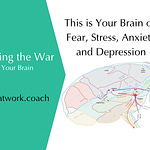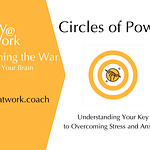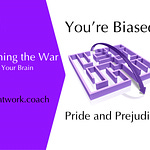What's the difference between coaching, mentoring, counselling, training and managing? Let's, however, take a look at the main similarities and differences, as this may be helpful for you in establishing the style you would prefer someone works with you. There is considerable overlap between these development approaches with each having a performance, direction, support or personal well-being focus in the context of the organization, your career or your whole life. Improving performance is largely about developing your job skills (competences). Whilst developing your soft skills (competencies) is better served through direction and support. Developing your character is best served through supporting your development and a focus on your personal well-being. You will see that there are overlaps indicated in the diagram. Perhaps more so with the growth of 'life coaching' which has filled a niche in developing you in your life whilst not being therapy or counselling. What is mentoring? In spite of its origins in Greek culture some 3,000 years ago, mentoring is a buzzword today where life and work is high-tech but not high-touch. When we use the word “mentoring”, a dozen or more different images race across our minds. It seems that we might not all be on the same page. It will serve us well then, to offer a working definition that brings us all together in our understanding. Here, I have tweaked a definition original from Paul Stanley and Robert Clifton (Stanley & Clinton, 1992) and later by Dr Tim Elmore (Elmore, 2011): Mentoring is a working relational experience through which one person empowers and enables another by sharing their wisdom and resources. What is coaching? In the 16th century, the word 'coach' described a horse drawn vehicle to take people from where they were to where they wanted to be. In the 20th century, big buses with rows of seats were also called coaches, and their purpose was the same: to get people to where they wanted to go. The word 'coach' was given athletic meaning around 1880 when it was used to identify the person who tutored university students in their rowing on the Cam river in Cambridge. Later, the word (and role) became associated with musicians, public speakers and actors, who rely on coaches to improve their skills. Don Shula, former coach for the Miami Dolphins wrote about athletes who would come to his team with their skills and talents, ready to submit to the coach whose job was to instruct, discipline, and inspire them to do things better than they thought they could do on their own. Over time, the idea of a coach has not really changed. A coach is a vehicle to take someone from where they are now, to where they want to be. Eric Parsloe, author of "The Manager as Coach and Mentor" (Parsloe, 1999) defines coaching as: "a process that enables learning and development to occur and thus performance to improve." The table below is an overview of the main differences between the four most common approaches to coaching and how these differ from the manager's role.
Share this post

LAx: What's the Difference between Coaching, Mentoring, Managing and Counselling?
www.joyatwork.coach
Joy@Work Podcast
Helping marketplace leaders #UnStuck their true potential to thrive in life and leadership to build a successful, sustainable business with collaborative, high performance teams and Joy@Work with practical, neuroscience-based AdvantEdge Guides and coaching.
Helping marketplace leaders #UnStuck their true potential to thrive in life and leadership to build a successful, sustainable business with collaborative, high performance teams and Joy@Work with practical, neuroscience-based AdvantEdge Guides and coaching.Listen on
Substack App
RSS Feed
Recent Episodes













LAx: What's the Difference between Coaching, Mentoring, Managing and Counselling?